Discover Your Roots
SIGN UPDiscover Your Roots
SIGN UPAugusta is a female name of English origin that means "Great." It is often associated with strength, power, and magnificence. This name has a rich history and is used in various places around the world, including Australia, Brazil, Canada, France, Germany, Italy, Spain, the United States, and other regions. Additionally, Augusta is not only a given name but also a title used for the Empresses of the Roman and Byzantine Empires, as well as the name of Roman roads, a spider genus, an asteroid, and more. The name Augusta embodies greatness and is linked to a wide range of historical and cultural references, making it a significant and impactful choice for a female name.
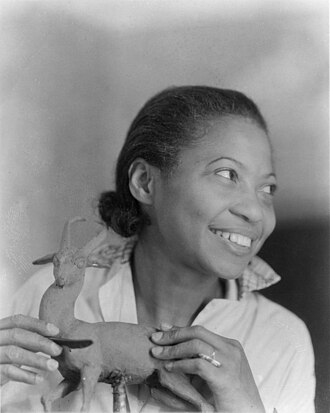
Augusta Savage, born Augusta Christine Fells, was an influential American sculptor associated with the Harlem Renaissance. She played a pivotal role in shaping the careers of numerous artists and advocated for equal rights for African Americans in the arts. Despite facing opposition from her father, a Methodist minister, she persisted in pursuing her passion for sculpting from a young age. Savage's dedication to art and teaching led her to establish a studio that nurtured a generation of renowned artists. Throughout her life, she encountered personal hardships, including the loss of her first husband and financial challenges. Despite these obstacles, Savage's talent and determination earned her recognition and opportunities, such as winning commissions for prominent figures and being awarded a scholarship to study in Rome. Her relentless advocacy for equal rights and her impactful contributions to the arts continue to inspire and influence generations of artists and activists.
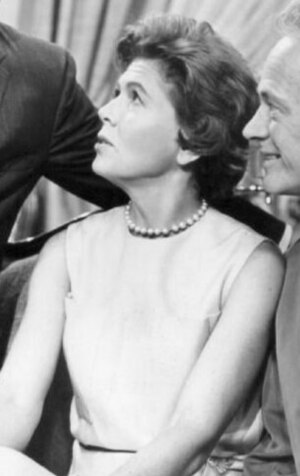
Augusta Keith Dabney (October 23, 1918 – February 4, 2008) was an American actress renowned for her compelling portrayal of Isabelle Alden, the benevolent matriarch, on the daytime series Loving. Born and raised in Berkeley, California, Dabney graduated from the University of California at Berkeley before pursuing her passion for acting at the American Academy of Dramatic Arts in New York. Her career spanned across stock theater, Broadway, and early television, with significant roles in soap operas like Young Dr. Malone, Another World, and General Hospital. Dabney also graced the silver screen in films such as That Night and The Paper.In her personal life, Dabney was married to actor Kevin McCarthy and subsequently to actor William Prince. Their on-screen chemistry extended beyond the reel, as they appeared together in various soap operas and even portrayed a married couple in The Paper. Dabney's illustrious career earned her a BAFTA Award nomination for Best Actress in a Leading Role for her performance in That Night. Following a remarkable acting journey, she passed away at the age of 89 in Dobbs Ferry, New York, leaving behind a legacy cherished by many in the entertainment industry.
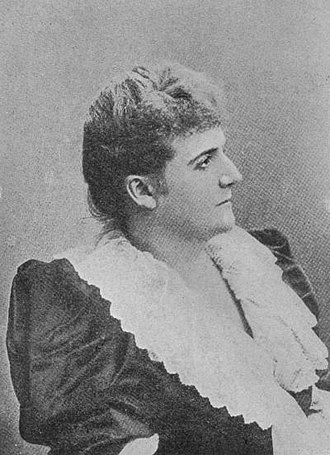
Augusta Mary Anne Holmès (16 December 1847 – 28 January 1903) was a French composer of Irish descent who made significant contributions to the world of music. Despite facing societal barriers as a female composer in the 19th century, Holmès pursued her passion for music, composing a diverse range of works including songs, oratorios, and operas. Influenced by Wagner, her compositions often showcased powerful orchestration and political themes. She also played a pivotal role in advocating for the performance of Wagner's works in Paris. Holmès' personal life was marked by her relationship with the poet Catulle Mendès, with whom she had five children. Her legacy lives on through her musical manuscripts, which she bequeathed to the Paris Conservatoire. Despite the gender biases of her time, Augusta Mary Anne Holmès left an indelible mark on the world of classical music with her innovative compositions and dedication to her craft.
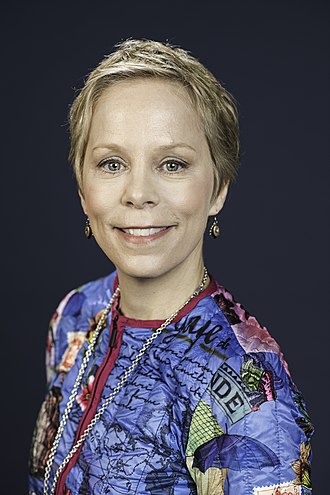
Augusta Read Thomas, born on April 24, 1964, is an esteemed American composer and University Professor of Composition at the University of Chicago. With an impressive educational background, she studied under renowned figures like Oliver Knussen, Jacob Druckman, Alan Stout, and Bill Karlins, honing her skills and creativity. Thomas made history as the longest-serving Mead Composer-in-Residence at the Chicago Symphony Orchestra, where she premiered nine commissioned orchestral works and played a pivotal role in establishing the MusicNOW series.Throughout her illustrious career, Thomas has garnered widespread recognition and admiration in the realm of American music. Her prolific commissions span across esteemed institutions and organizations, including the Santa Fe Opera, BBC Proms, and the Boston Symphony, showcasing the breadth of her influence and artistry. In addition, her significant contributions to music education and curation, such as the creation of the Chicago Center for Contemporary Composition and the Ear Taxi Festival, have further solidified her impact on the industry.With numerous accolades and accomplishments to her name, including being elected a Fellow of the Royal Academy of Music, Thomas continues to captivate audiences and inspire fellow musicians with her innovative compositions and unwavering dedication to the art form.
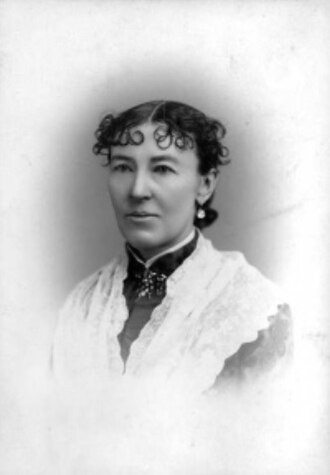
Augusta Pierce Tabor (March 29, 1833 – January 30, 1895) was a prominent figure in Colorado's history. Born in Augusta, Maine, she was the wife of Horace Tabor, a merchant and miner, and the first white woman to live in the Idaho Springs mining camp. Augusta was a determined and charming woman who believed in women's rights and made significant contributions to social service and philanthropy. She married Horace Tabor in 1857 and together they ventured west to Kansas before settling in Colorado. The Tabors played a key role in the development of the mining industry, establishing a successful store and even building Denver's first opera-quality theatrical performance space, the Tabor Grand Opera House. Despite facing personal challenges, including her husband's infidelity, Augusta persevered and remained engaged in community activities, hosting fundraisers and contributing to various charitable causes. Her legacy lives on through her induction into the Colorado Women's Hall of Fame in 1991, and her portrayal as a major character in the opera "The Ballad of Baby Doe". Augusta Pierce Tabor's impact on Colorado's history and her entrepreneurial spirit continue to inspire generations.
All images displayed on this page are sourced from Wikipedia or Wikimedia Commons.We use these images under their respective Creative Commons or public domain licenses. Wherever applicable, author attributions and license information are provided. If you believe an image is used incorrectly or outside its license terms, please contact us so that we can review and correct the issue.